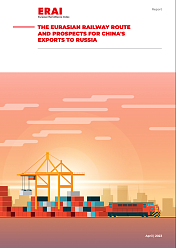Currently, 80 fixed timetable trains have been operated, as China Railways stated. Two of the three new westbound links depart every Wednesday and Saturday from Xi’an and end in Duisport. Transit time for these connections revolves around 12 and a half days. The third westbound service implemented into the fixed timetable scheme leaves from Chengdu and runs up to the Polish city Lodz. Departures are scheduled for every Saturday, with a transit time of roughly 11 and a half days.
For eastbound services, one train will leave Duisburg every Tuesday while the other one will leave Lodz every Thursday. The transit time is slightly faster than the westbound traffic, with a scheduled travel time of around 11 and a half days for both. The convoy departing from Duisburg is operated in cooperation with DB Cargo Eurasia, while the one departing from Lodz is handled by a partnership that also involved RTSB.
Fixed timetable trains
The fixed timetable train is a concept first launched in October 2022, which made it possible to operate China Europe trains on a set timetable. The first fixed timetable train connected Xi’an and Duisburg in a record delivery time of less than ten days. In June this year, China Railways and DB Cargo Eurasia launched the first Eastbound fixed timetable train, with a delivery time of 12.3 days. With more and more fixed timetable trains on the schedule, Silk Road trains are expected to deliver more cargo in a more timely manner.




